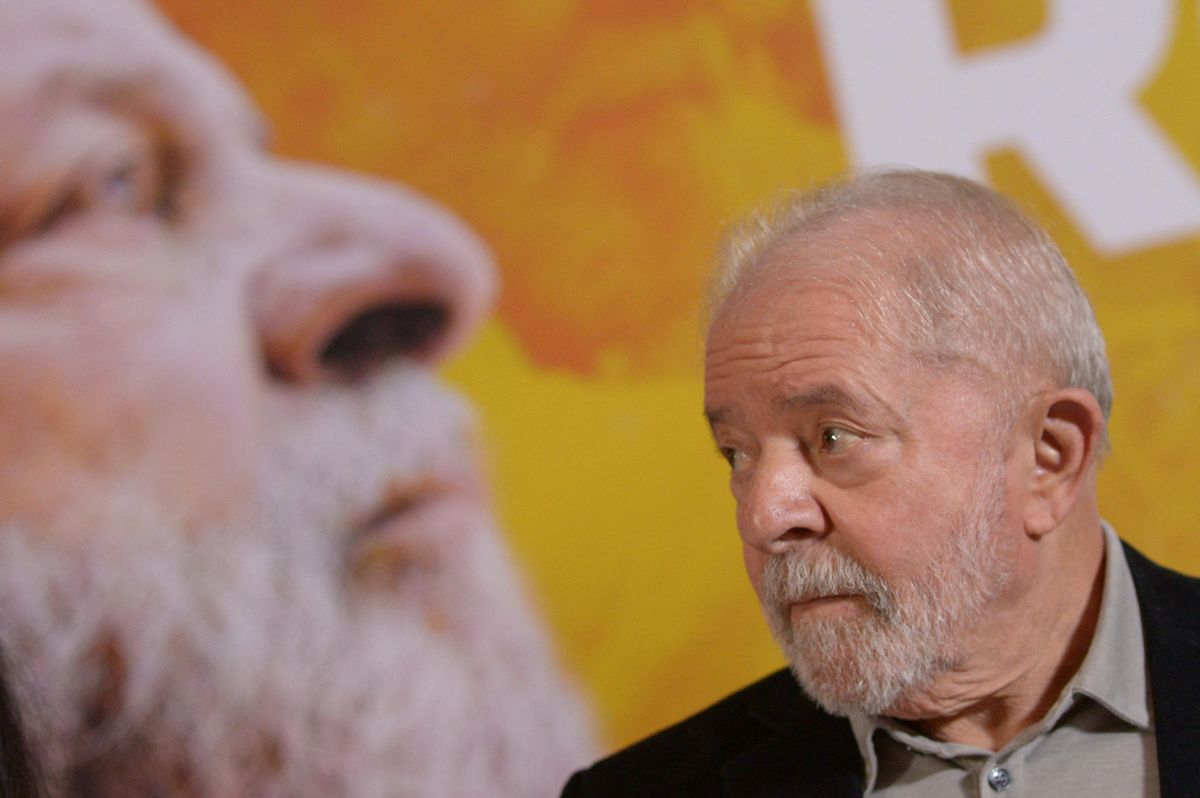With just six months left before Brazil’s presidential election, former President Luiz Inácio Lula da Silva officially launched his campaign Saturday for the country’s top job. A highly celebrated politician, Lula seeks to lead Latin America’s largest democracy at a tumultuous time amid fears over authoritarianism and a rising cost of living.
Lula leads in the polls, but his bid could get complicated if the conservative incumbent, Jair Bolsonaro, continues to close the gap with policies designed to relieve the economy. Lula has also suffered self-inflicted damage by making controversial statements.
Following two consecutive presidential terms, Lula left office in 2010 with an enviable 80% approval rating. His progressive reforms, a massive welfare program, and infrastructure development (underwritten by a timely surge in Brazilian exports during a commodities boom) helped pull millions out of poverty.
Later convicted of corruption, many discounted Lula’s ability to stage a political comeback. But Brazil’s Supreme Court annulled the conviction in 2021, making his return seem inevitable. By early 2022, the 76-year-old looked unstoppable and was leading the polls by over 20 percentage points.
But Bolsonaro — a divisive, gun-loving, anti-vaccine former army captain — is now closing the gap. Recent polling suggests that Lula is now ahead by only 5 percentage points. Bolsonaro’s uptick is also partially driven by the end of the campaign run for Sergio Moro, a former anti-corruption judge, making this largely a two-horse race.
One school of thought blames Lula’s lapse on his gaffes. Lula’s recent statements have incensed and isolated voters, putting his campaign in trouble. Those statements have been seen as pro-abortion (which is anathema in conservative Brazil), anti-middle class (Brazilians display more wealth than that of the US or Europe, he claims), and anti-cop (Bolsonaro doesn’t care about people, only police officers, Lula says).
But Brazil’s politics are complicated. What look like gaffes and missteps to some are seen by insiders as calibrated moves by Lula to appease his own party.
Rio de Janeiro-based analyst Thomas Traumann, a former communications minister for Lula’s Workers’ Party and author of The Worst Job in the World, believes Lula’s problem is internal, within the Workers’ Party. The more militant left-wing, Traumann explains, was upset by Lula’s choice of his running mate, Geraldo Alckmin, who is seen as too conservative by insiders. Those opposed to Alckmin need to be appeased.
That’s why Lula's proposed measures — to revoke labor legislation reform, end the budget ceiling, establish government control over Petrobras, and push public policy against LGBTQ-phobia — may seem over the top, even by Lula’s own liberal standards, but are designed to cement support internally. Even international optics — like Lula holding Ukrainian President Volodymyr Zelensky equally responsible to President Vladimir Putin for the war in Ukraine — may be designed for the consumption of Brazil’s far left, which still sympathizes with authoritarian regimes, like those in Cuba.
“It is like Lula’s campaign is paying some sort of fine to the left-wing for accommodating Alckmin into the fold,” says Traumann.
The other school of thought says everything hinges on the state of the economy. They believe that while Lula’s bid remains strong, his main opponent, Bolsonaro, is experiencing a surge thanks to recent economic moves, such as increasing the minimum wage and boosting job recovery.
Bolsonaro is “getting closer to Lula due to the partial recovery of income since the beginning of the year,” says Daniela Teles, a Brazil researcher at Eurasia Group. She points to Bolsonaro’s 10% increase in the national minimum wage and the introduction of an extra annual paycheck for pensioners.
Chris Garman, managing director for the Americas at Eurasia Group, agrees that the economic boost has helped Bolsonaro, but he doesn’t think that Lula’s statements are having a negative effect on the front-runner’s campaign.
“I think the press has got all this wrong. The narrative is that the lead is being squandered because Lula is making controversial statements on a range of issues,” he says. “But the key is whether this economic recovery will continue. It has nothing to do with what Lula is saying.”
Lula is still expected to win, and — gaffes or not — that’s true largely due to the forecasted continuation of high inflation. “But if the economy surprises to the upside,” says Garman, “Bolsonaro’s odds would grow.”






